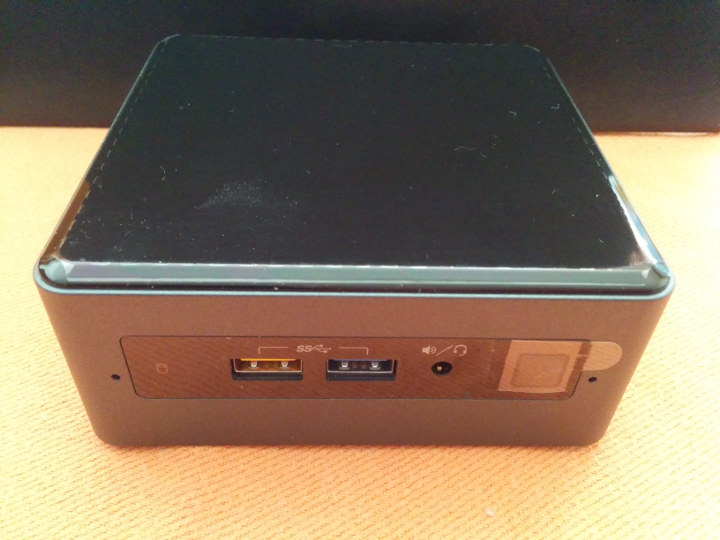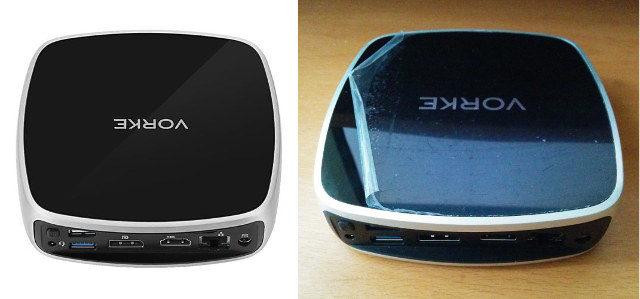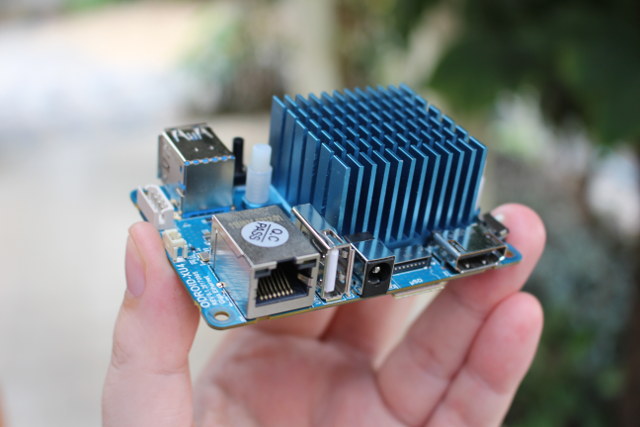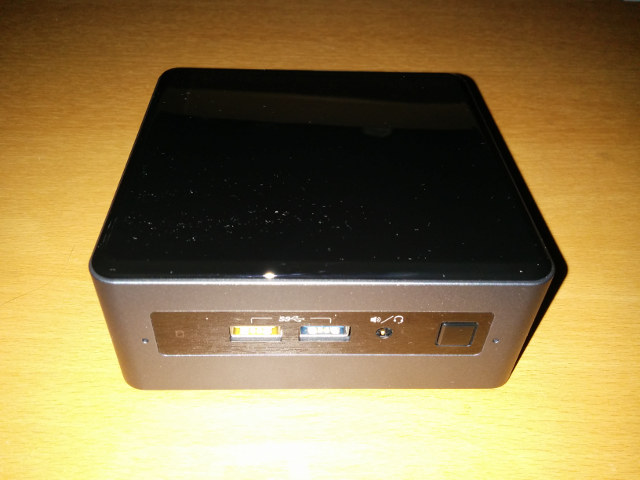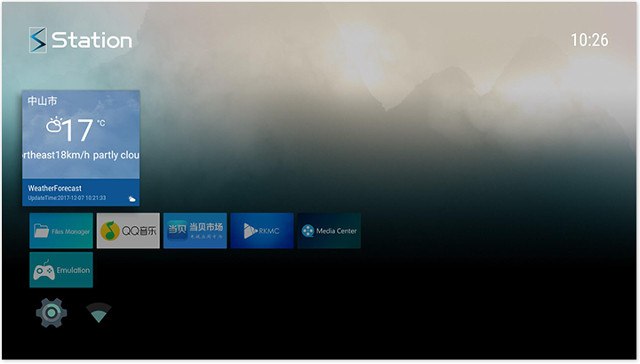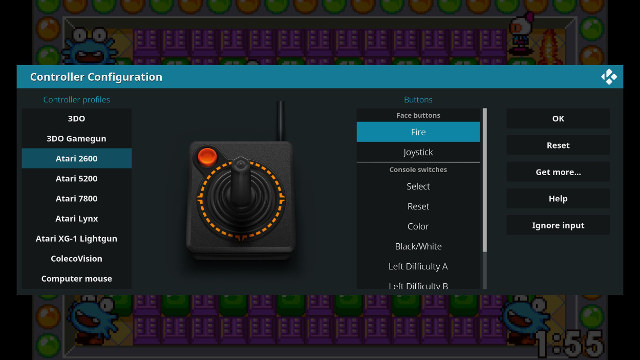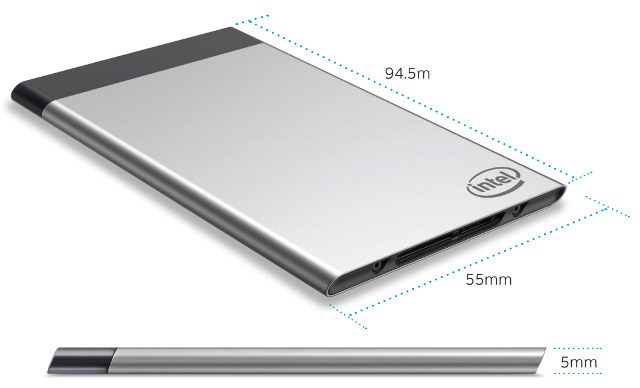When Intel released their latest NUC Gemini Lake mini PCs they prioritized cost over performance. As a result the processor they chose for the ‘Intel NUC 7 Essential’ mini PC is somewhat underwhelming. Fortunately they released another model in the series, the rather misleadingly named ‘Intel NUC Kit NUC7PJYH’ which is is actually a ‘barebones’ mini PC just needing a stick or two of RAM and an SSD for storage. It contains an Intel Pentium Silver Processor J5005 SOC which is a quad core processor bursting up to 2.80 GHz together with a slightly more powerful Intel UHD Graphics 605 processor that is capable of 4K support at 60Hz. Visually it is no different to the Celeron NUC reviewed earlier in that it is physically small consisting of an approximately 4.5″ square case about 2″ tall with a distinctive front panel that includes the power button and a couple of […]
Vorke V5 Plus Kaby Lake Mini PC Review with Windows 10 and Ubuntu 18.04
The Vorke V5 Plus mini PC just goes to show how initial impressions can be very misleading. Arriving in a plain manila-coloured box with the protection film on the top of the device starting to peal-off the minimalist contents only included a round-pin (European?) power supply and a small B&W ‘user’ manual. The mini PC has an Intel Celeron Processor 3865U from the Kaby Lake mobile range which is a dual-core (dual-thread) non-turbo 1.8GHz processor. However this SoC also includes an Intel HD Graphics 610 processor capable of 4K support at 60Hz through DisplayPort, although only 4K@24Hz on HDMI (1.4). Additionally the SoC supports DDR4 RAM in dual-channel configuration. The V5 Plus model which comes with both memory and storage although it is sold without them as a barebones V5 model. Physically the V5 looks similar to a NUC and the pre-populated V5 Plus included a single SODIMM stick of […]
Review of Ubuntu 18.04 on ODROID-XU4Q Development Board
Hardkernel released their first Samsung Exynos 5422 octa-core board in July 2014 with ODROID-XU3, which at the time was really a powerful board, but also pricey at $179. Later that year, the company released a cheaper version ($99) called ODROID-XU3 Lite, which I had the chance to review with Ubuntu 14.04 and Android 4.4. The company’s adventure with Exynos 5422 processor did not stop there, as in 2015 they released the smaller and even cheaper ($74) ODROID-XU4 board, and last year launched a fanless version of the board with ODROID-XU4Q featuring a large heatsink. More recently, the company also introduced ODROID-HC1 and ODROID-MC1 solutions for respectively network storage and clusters applications. That’s the short history of Hardkernel Exynos 5422 boards as I remember it, and that means that since 2014, or nearly 4 years so far, the company has kept updating Ubuntu and Android firmware for their board, including the […]
Intel NUC7CJYSAL “June Canyon” Gemini Lake NUC Mini PC Review with Windows 10 and Ubuntu
The hardware specification for mini PCs has recently evolved past the traditional fixed amount of memory and storage. Now mini PCs are shipping with SODIMM slots allowing RAM expansion and a variety of M.2 or SSD combos providing flexible storage options. Recent mini PCs are also coming to market with desktop processors rather than mobile processors because there has been a gradual acceptance of the necessary inclusion of a small internal fan. In doing so not only is this addressing the key limiting factors for mini PCs but it is also redefines the very definition of a mini PC. Until recently Intel NUCs (Next Unit of Computing) were seen as small-form-factor personal computers primarily because they consisted of the traditional motherboard with a processor, included removable RAM and storage and were enclosed in a case with an external power supply. They were also sold as kits meaning they were essentially […]
Android based Station OS Firmware Focuses on Multimedia and Retro Gaming for ROC-RK3328-CC and Firefly-RK3399 Boards
If you’re interesting in gaming and multimedia, one choice is to run Linux based RetrOrangePi or RetroPie on your favorite development board/SBC, and soon, with the upcoming release of Kodi 18, multimedia and retro gaming will just be an app installation away in Android, and other supported operating systems, since RetroPlayer retro-gaming emulator is part of the latest – and yet-to-be-released – version of Kodi. In the meantime, if you own a ROC-RK3328-CC and/or Firefly-RK3399 board(s), you may want to try Station OS, a firmware based on Android with a focus on 4K video playback and retro gaming. The description claims that Stations OS includes “more than 20 kinds of optimization for video and games, achieve multimedia center, Kodi 4K hardware decoding, game simulator hardware acceleration, real-time cast screen display, network acceleration, perfect Root.” The firmware does not use Kodi directly, but RKMC fork instead with some improvements, and they […]
Kodi 18 Features and Improvements (FOSDEM 2018 Video)
Most Kodi users are now running Kodi 17.x Krypton that was initially released in February 2017, with the latest point version being Kodi 17.6. At the time of Krypton release, the developers had also started working on Kodi 18 “Leia” which should now be in “alpha”, and the stable release may only be a few months away although Kodi developers do not provide an ETA. What they did provide however – via Martijn Kaijser at FOSDEM 2018 – is a progress report for Kodi 18 “Leia”, as well as some insights into Kodi 19 whose development has just started. Kodi 18 has gone through a lot of cleanup with the code upgraded to C++11 standard, duplicate code and obsolete libraries removed, dropped unmaintained feature, and so on. They also moved non-core features such as audio encoders and decoders, PVR, picture decoding, etc… to external plugins. This work resulted into 299,476 […]
Vorke V1 Plus Celeron J3455 Mini PC Review with Windows and Ubuntu
Most Intel based mini PCs use processors classified as ‘Mobile’ as these have lower thermal design power (TDP) ratings which is the maximum amount of heat generated by the processor: However, the new Vorke V1 Plus has incorporated a ‘Desktop’ processor namely the Intel Celeron J3455. On paper this processor looks like it should perform similar to the Intel Pentium N4200 processor but with a tradeoff between being a cheaper processor to purchase but more expensive to run due to the increased power requirements. Geekbuying provided a Vorke V1 Plus for review so let’s start by taking a look at the physical characteristics. The device comes in a plain box and was supplied with the ‘right AC Adapter’ for my country. The first observation is that it is quite a large device. At just over 6” square (153mm) and nearly 1.5” tall (38mm) it is the biggest mini PC I’ve […]
Intel Compute Cards Review – Windows 10 and Ubuntu 17.04 on CD1C64GK, CD1P64GK and CD1M3128MK
The Intel Compute Stick revolutionized the mini PC market through the introduction of x86 based processors making Windows available as an OS option. However, for Intel the biggest target market turned out to be business rather than consumer with digital signage being a key user. As a result Intel have responded with the introduction of the Intel Compute Card. So far they have released four versions of card: and they they differ from compute sticks by no longer being standalone mini PCs but dependent on a dock or host device. The card itself is relatively small with a footprint slightly larger than a standard credit card: and is distinguished by the back being printed with details about the card including the model: The lack of emphasis on the consumer market is also evident in the rather unobtrusive plain packaging: On the end that inserts into the dock or host device […]


